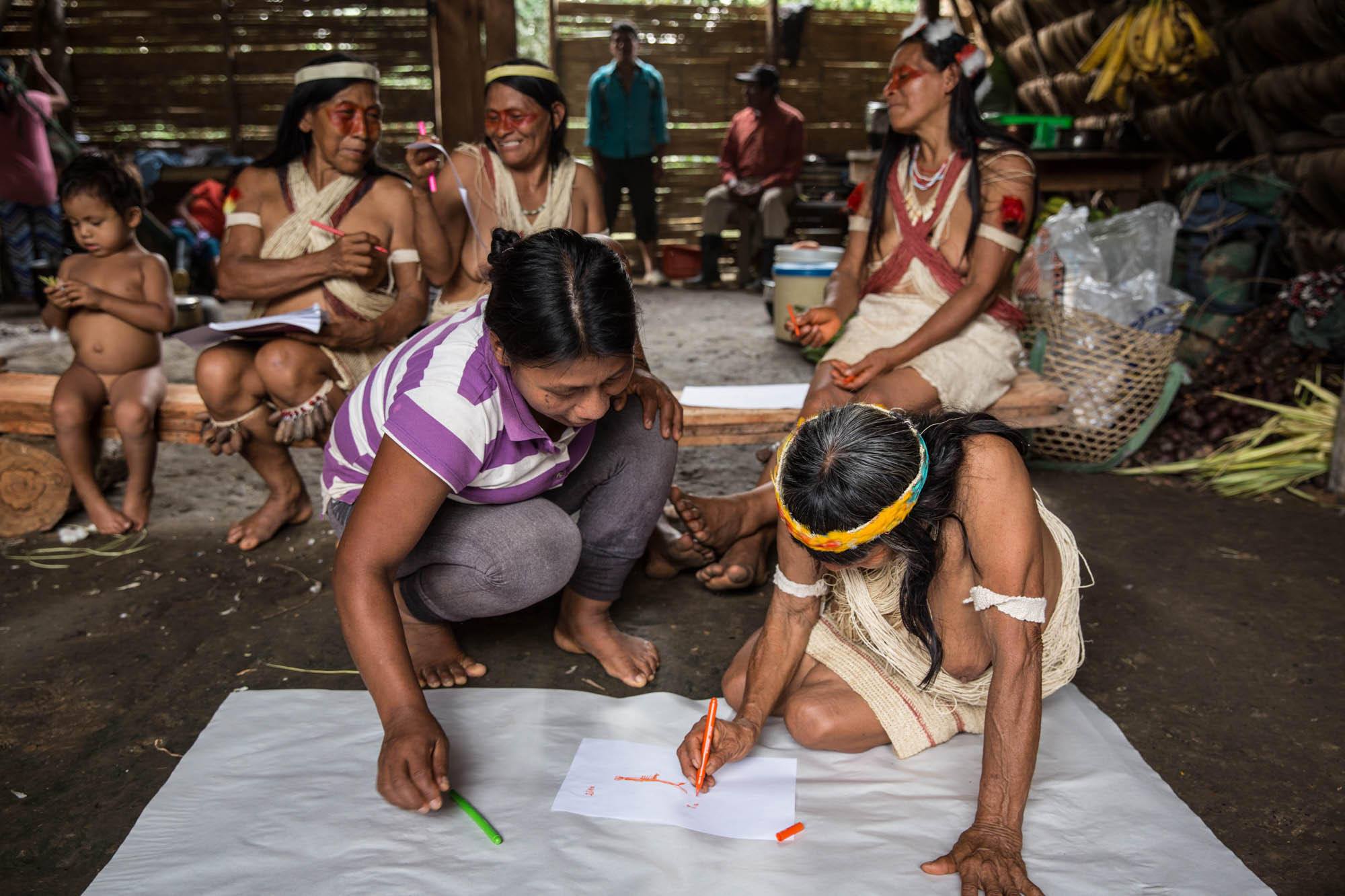Amazon Frontlines defends indigenous rights to land, life and cultural survival in the Amazon rainforest. How do they do it?
We are supporting the struggles of indigenous families to ensure access to clean water and renewable energy.
For more than half-a-century the Kofan, Siona, Secoya and Waorani peoples of the Amazon have lived downriver from Ecuador’s largest oil fields, which have contaminated their rivers and creeks and gravely impacted their health, while enriching the oil industry and providing fuel for the automobiles of modern society.
We recognize the injustice of this situation, and as a team – comprised of internationals raised in the cities of western civilization – we are committed to reimagining how we can honestly and effectively support indigenous struggles in the globalized world of the 21st century.
Our focus on “Building Solutions” is not about quick technological fixes, nor the naïve belief in the power of “good intentions” to resolve a deep human, health, social and environmental crisis, but rather, about working side-by-side with indigenous peoples struggling to secure life’s basic necessities in a forest imperiled by the industrial frontier.
We help native cultures revive
In the short span of centuries – as a result of invasion, conquest and resource extraction – indigenous peoples of the Amazon have been struggling to protect their cultures from extinction.
Plant medicines. Healing systems. Hunting, fishing and agricultural techniques. Pathways to spiritual enlightenment. Language, stories and myths. Cosmovision. Ways of life that care for, sustain and defend one of our planet’s most complex, rich, mysterious and important ecosystems. Thousands of years of cultural knowledge is on the verge of disappearing.
The Amazon Frontlines Team strives to intimately understand the diverse cultures of this region; as the elders portray how it was in years past, the outside influences and atrocities that have threatened their existence, and also how to nourish the remaining cultural seeds into fruition. We especially acknowledge and work to support the vital role each mother plays in living-out and passing culture within the homes, gardens and forests of the Amazon.
We are supporting the struggles of indigenous stewards to protect more than 5 million acres of their ancestral rainforest homelands.
In the Amazon rainforest, indigenous territory provides food, medicine, and shelter; harbors stories and history; and forms the basis for indigenous cosmovision, spirituality, and education. The physical and cultural survival of indigenous peoples depends upon vast, healthy and well protected territories. We believe that indigenous peoples have the right to protect their rainforest homes from any and all external threats – whether from oil, logging, industrial agriculture, roads, or colonization. We are committed to supporting the struggle of indigenous peoples in the Amazon to live well and healthy in their rainforest territories.
We are supporting indigenous youth to tell their own stories in their own voices, keeping indigenous memories alive.
For hundreds of years, elders in indigenous communities have shared their stories, their memories and their histories with their children, grandchildren and neighbors. Without written languages, the Secoya, Waorani, Siona and Kofan cultures depended on stories and the generational bonds created through oral tradition. As colonization, deforestation and acculturation creep deeper and deeper into the indigenous ways of life in the Amazon, that living memory is harder and harder to transfer from generation to generation.
Now more than ever, indigenous stories must be told, passed down to future generations and also shared with the outside world, whose destructive way of life is the root cause of cultural loss.
We believe that indigenous communities must tell their own stories, so we are training indigenous youth to use film, photography and other storytelling techniques to transmit the knowledge and histories of their ancestors within their communities while creating films that allow those who live outside of the Amazon to understand their changing realities.

